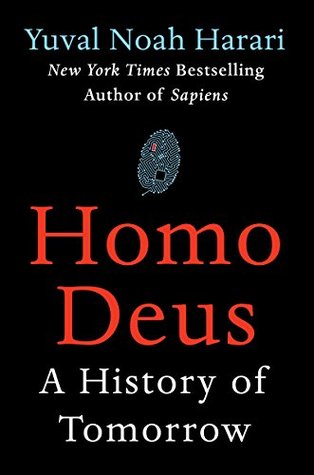After the tremendous success of his first book Sapiens: A Brief History of Humankind, Yuval Noah Harari, presents the concluding second book Homo Deus: A Brief History of Tomorrow. While the first book focused more on the history (past) of human evolution, the second one is more about what future holds for the humanity. Infact, most of the content resembles typical Hollywood sci-fi blockbusters. The only noticeable difference is that the book content is derived from logic based on findings from amazing recent research in the fields of biology, genetics, and AI.
The book connects the dots about religion, conspicuousness, and intelligence. The theme of whether god exists is similar to the first book. The author claims that the existing religions have high probability of reaching obsolescence in foreseeable future. Sometimes, I wonder (in positive humor) that instead of creating ruckus or banning books of Dan Brown, religion should ban such books because both the books clearly ask very tough questions about religions and the various holy scripture. Nonetheless, the arguments are impeccable and make any proclaimed religious guru nervous.
Interestingly, author has quoted the works of Daniel Kahneman, but clearly ignores the anchor/framing effect in some of his arguments.
For example, Yuval Noah Harari asks two questions (choices) comparing the options of medieval period vs. today’s situation. Which one you would choose – spending time with family and having dinner daily with your flock vs. running a rat race and have no time to your kids/family.
What would you choose?
Do you see the problem here?
Think hard.
Now just rethink about the probability of surviving – the mortality rate of kids, the dangers of malnutrition, and possibility of dying very young due to insect bite or simple flu (no medicines at that time).
Now read the para again and make the choice!
Finally, something to ponder about
For the first time in history, more people die today from eating too much than from eating too little; more people die from old age than from infectious diseases; and more people commit suicide than are killed by soldiers, terrorists and criminals combined. In the early twenty-first century, the average human is far more likely to die from bingeing at McDonald’s than from drought, Ebola or an al-Qaeda attack…
